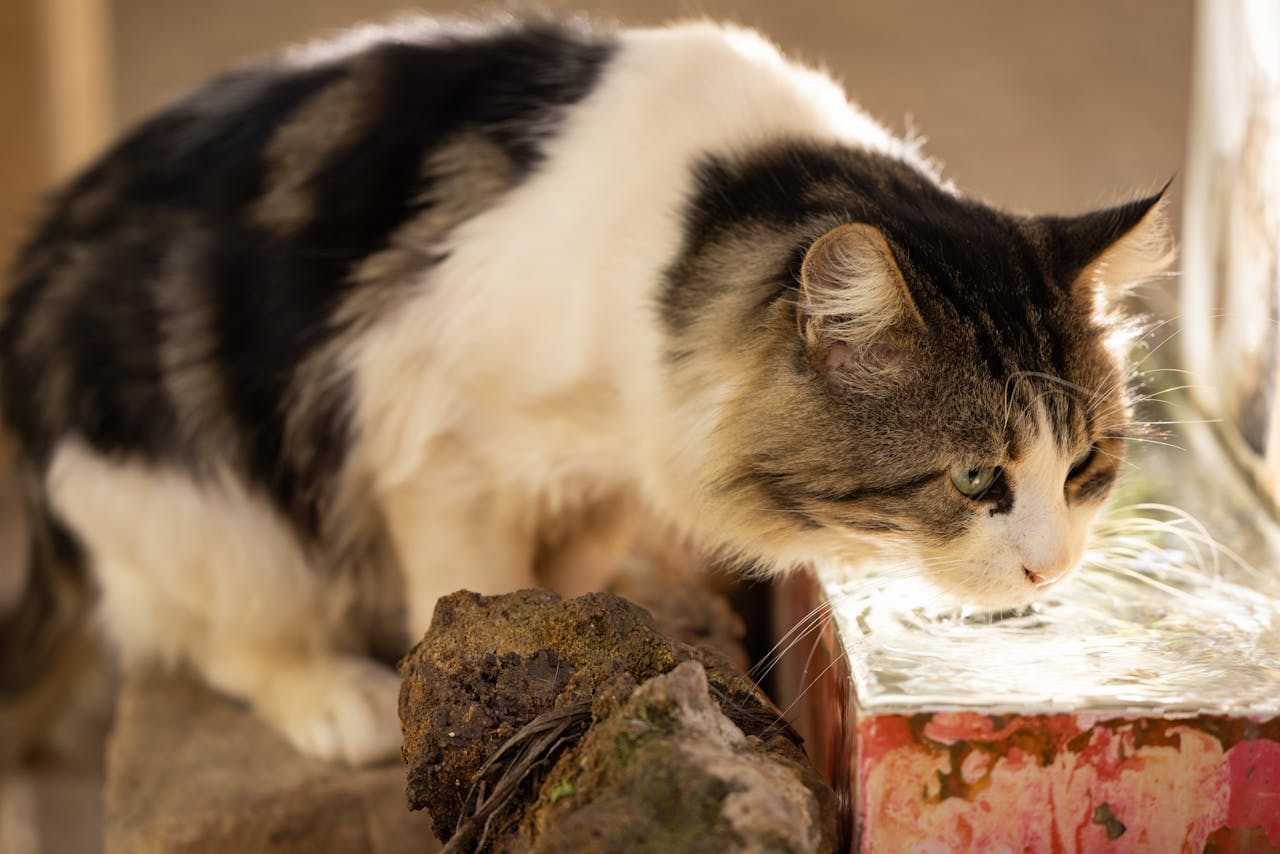is brita water safe for cats
FILTEReD WATER FOR CATS
In the realm of cat care, we often prioritize the quality of food, the comfort of bedding, and the stimulation of toys. However, one crucial aspect that sometimes goes overlooked is the quality of water our beloved feline companions consume. Just as we humans benefit from filtered water, our cats too can reap immense rewards from this simple yet significant upgrade.
In the modern age, tap water, while seemingly innocuous, can harbor a plethora of contaminants that pose potential health risks to our cats. Chlorine, lead, PFAS (per- and polyfluoroalkyl substances), and fluoride are among the common substances found in municipal water supplies. While these contaminants are typically present in trace amounts, their cumulative effects over time can be detrimental to the health of our furry friends.

Understanding the Importance of Filtered Water for Cats

Filtered water serves as a safeguard against harmful substances that may be lurking in tap water. Chlorine, often used as a disinfectant in water treatment facilities, can irritate a cat's sensitive digestive system. Moreover, cats, being obligate carnivores, have a lower tolerance for certain chemicals compared to humans. Even in small doses, these substances can accumulate in their bodies, potentially leading to long-term health issues. Lead, a toxic heavy metal, can leach into water from aging pipes or plumbing fixtures. Exposure to lead can result in neurological damage and other serious health complications in both humans and animals.
Similarly, PFAS, commonly found in industrial and household products, have been linked to various health problems, including cancer and reproductive issues. Furthermore, fluoride, now associated with lower IQ and neurological issues in humans, can be problematic for cats when ingested in excess. Their bodies are not equipped to process fluoride efficiently, and prolonged exposure may lead to fluoride toxicity. Ingesting contaminated water can also deter cats from staying hydrated, as they may instinctively avoid water that tastes or smells off.
Drawing Parallels with Fish and CATS
Can Cats Drink Tap Water: An apt analogy to underscore the importance of filtered water for cats is the plight of fish in unfiltered tap water aquatic environments. Fish are highly sensitive to changes in water quality, and even small fluctuations in contaminant levels can have devastating effects on their health. That's why numerous individuals within the aquarium enthusiast community prioritize water filtration and engage in extensive research on filtration systems for their fish. Similarly, while cats may not exhibit immediate adverse reactions to tap water, the long-term consequences of ingesting contaminants can be insidious.
Moreover, the principle extends beyond our pets to encompass human health as well. Just as we invest in water filtration systems for our homes to protect ourselves from harmful substances, it's equally essential to extend this protection to our animal companions. After all, they share our living spaces and are susceptible to the same environmental hazards.
Should I Give My Cat Tap Water Or Bottled Water? When considering whether to give your cat tap water or bottled water, it's essential to prioritize their health and well-being. While bottled water might seem like a convenient option, recent findings have revealed concerning levels of contaminants, such as microplastics, leaching from the plastic bottles themselves. These microplastics can pose potential health risks to both humans and animals alike. Conversely, tap water, when properly filtered, can provide a safer and more environmentally friendly alternative. Investing in a quality water filtration system for your tap water can effectively remove harmful substances like chlorine, lead, PFAS, and fluoride, ensuring that your cat receives clean and safe drinking water. By opting for filtered tap water, you not only safeguard your cat's health but also contribute to reducing plastic waste and environmental pollution associated with single-use plastic bottles. Ultimately, providing your cat with filtered tap water is a responsible choice that promotes their overall health and minimizes environmental impact.
What Kind Of Water Can Cats Drink? As responsible cat owners, it's incumbent upon us to ensure that our cats have access to clean, filtered water at all times. Investing in a quality water filtration system tailored for pets can provide peace of mind, knowing that we're safeguarding their health and well-being. In addition to filtering out contaminants, filtered water often tastes better and is more appealing to cats, encouraging them to stay hydrated. Proper hydration is vital for maintaining kidney function, preventing urinary tract infections, and promoting overall vitality.
Filtered water for cats isn't just a luxury—it's a necessity for safeguarding their health and longevity. By removing contaminants like chlorine, lead, PFAS, and fluoride from their water supply, we can mitigate the risk of adverse health effects and ensure that our feline companions thrive in a clean and nurturing environment. Just as we strive to provide the best for ourselves and our families, let's extend that same level of care and consideration to our beloved pets. After all, they deserve nothing less.






Share:
Is Mouthwash Good For You
Is Fluoride Good For You